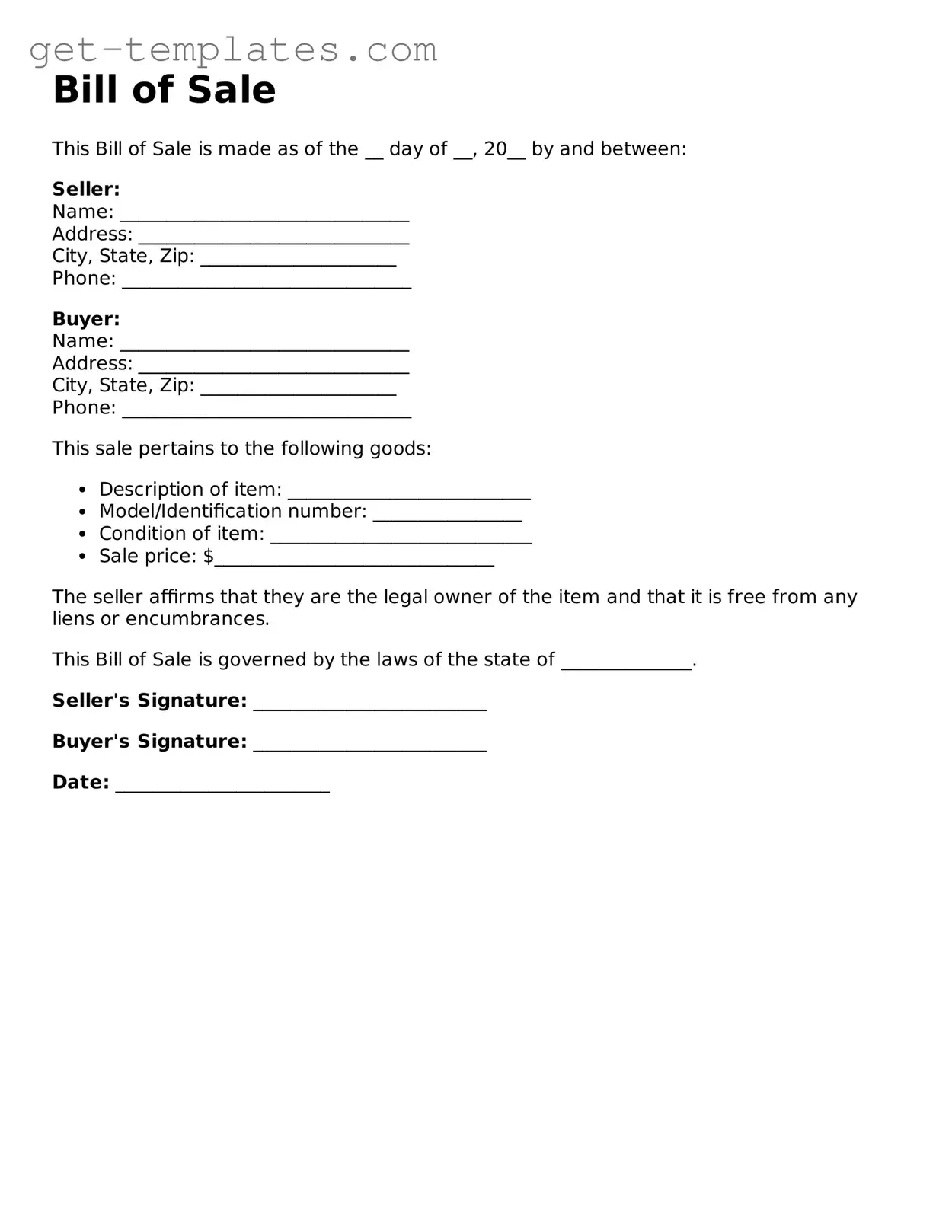Attorney-Approved Bill of Sale Form
A Bill of Sale is a legal document that serves as proof of the transfer of ownership of personal property from one party to another. This form outlines essential details such as the item being sold, the sale price, and the parties involved in the transaction. Understanding the importance of this document can help ensure a smooth transfer process and protect the interests of both the buyer and seller.
Get Document Online

Attorney-Approved Bill of Sale Form
Get Document Online
You’re halfway through — finish the form
Finish Bill of Sale online — edit, save, download made easy.
Get Document Online
or
⇓ PDF Form
